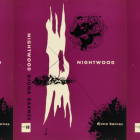The End of the Story
The End of the Story
Liliana Heker
Trans. Andrea G. Labinger
Biblioasis, Spring 2012
184 pages
$16.95
Type: metafiction, urgent
Lens: kaleidoscopic
Tones: questioning, contemplative, analytic, detached wryness
Concerning: myopic Diana Glass, an aspiring writer in Buenos Aires, 1976
And: her friend Leonora, an activist who’s been “disappeared” by the military junta and who, after undergoing horrific torture, works with the junta to “rehabilitate” other activists deemed worthy, and, to top it all off, has an affair with her prison guard, known as the Shark
Plus: Hertha Bechofen, an older writer and Austrian refugee
In the form of: Hertha telling us Diana’s fragmented attempts at telling Leonora’s story
Perspective and time slippage: often
Writing advice offered: begin the story when everything is almost over
The crux: survival vs. loyalty
Questions: How do you make sense of someone you thought you knew? Do the ends justify the means?
Dilemmas occasionally reminiscent of: Sophie’s Choice
With references to: the righteousness of Robin Hood vs. the absurdity of Alice in Wonderland
Most repeated sentence: “She was born to live life to the fullest.”
Sentence to copy down (and eat): “Leonora, always knowing her place in the world, was all bosom, milk, and opulence.”
Sentence to say aloud (and fear): “’Fuck psychology,’ Sixfingers says. ‘I want results.’”
Minor setback: the baroque structure – but it’s worth the effort
Major setback: none
But is it controversial?: Well, yes, very.
Physiological reactions: page gripping, cringing, back-of-the-neck shivers (torture scenes are explicit).
Intellectual reactions: frequent questioning, an immediate desire to reread
Further reading, for something über-intellectual, intertextual, and affecting: Ricardo Piglia’s Artificial Respiration
For something dark and wry and screwed up in the best possible dystopian way: Ana María Shua’s Death as a Side Effect
For a rich novel big on storytelling and almost entirely in dialogue: Manuel Puig’s Kiss of the Spider Woman



